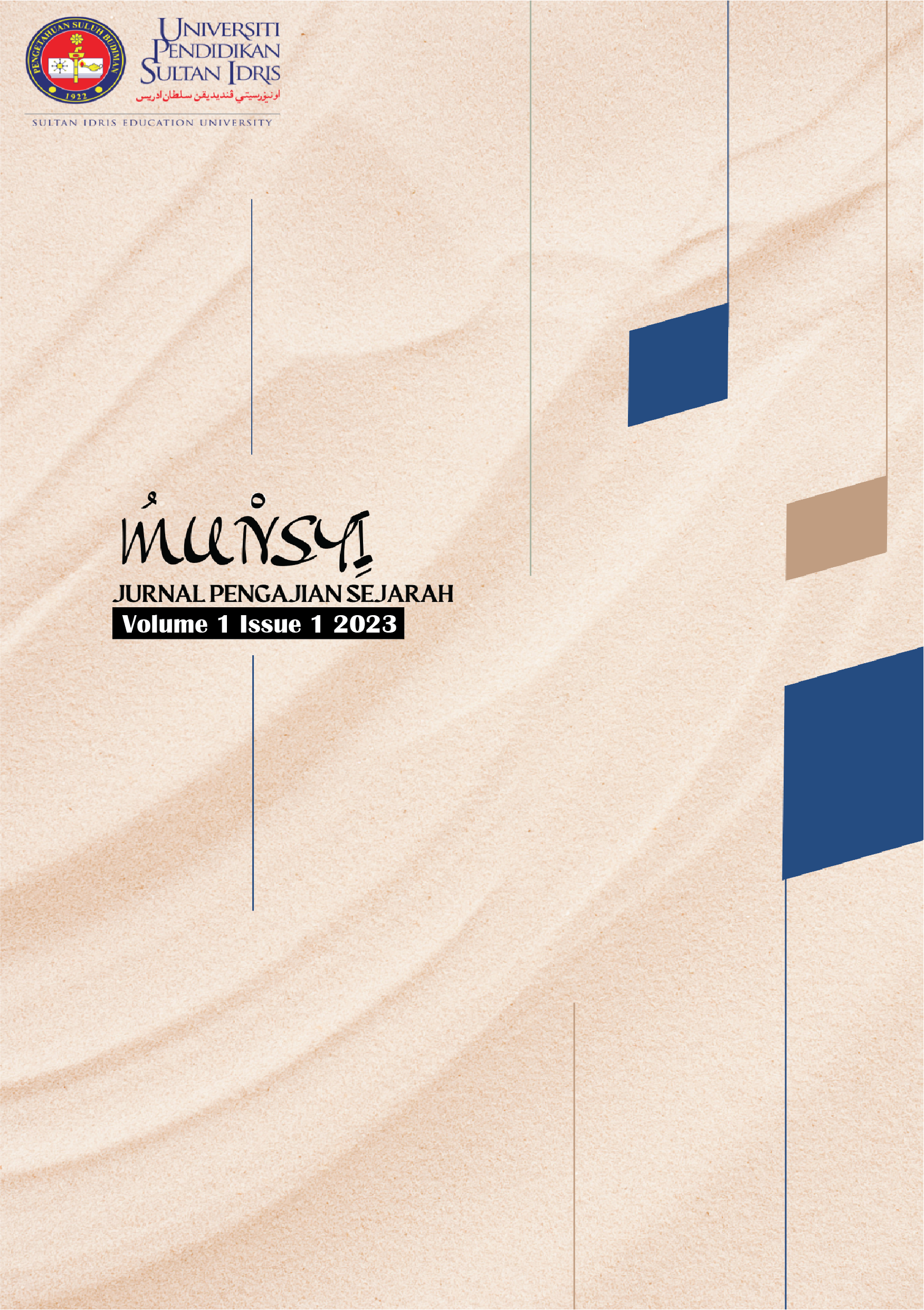RIDO Dynamics: A Preliminary Study of the Factors of Intra and Inter-Ethnic Conflict in The Southern Philippines
Dinamika RIDO: SATU kajian awal terhadap faktor-faktor pertelingkahan intra dan inter-etnik di Selatan Filipina
DOI:
https://doi.org/10.37134/munsyi.vol1.1.2.2023Keywords:
Ethnic conflict, Maranao, maratabat, Rido, taritib ago igmaAbstract
This article discusses intra- and inter-ethnic disputes in southern Philippines, also known as rido. Rido refers to conflicts between families or relatives that occur in the Maranao community, involving violent acts of revenge between families or kinship groups. These conflicts stem from disputes over land, political power and elections, personal honor, and other issues. Rido are closely related to the value system of the Maranao community, particularly the concept of maratabat deeply ingrained in the traditions and culture of the society. Consequently, everyone is responsible for preserving the honor and reputation of their lineage. This study aims to analyze the dynamics of rido in the context of ethnic conflict in the southern Philippines, particularly involving the Maranao ethnic group. This study finds that weaknesses in the justice system have exacerbated rido conflicts because the victimised families do not receive appropriate defence. This also encourages alternative solutions based on the traditional justice system. This preliminary study employs a qualitative approach by analysing secondary sources and a few primary sources, including the use of the interview method.
Downloads
References
Adam, J. & Boer, D. V. 2015. Conflict Mediation and Traditional Authority in the Province of Lanao del Sur, Mindanao. JSRP Paper 26, Theories in Practice Series.
ABS-CBN News. 13 Jun 2017. The Mautes and Marawi City: A Family’s Quest for Vengeance. https://news.abs-cbn.com/focus/06/13/17/the-mautes-and-marawi-city-a-familys-quest-for-vengeance
Barton, R. F. 1949. The Kalingas: Their Institutions and Custom Law. Chicago: University of Chicago Press.
Benitez, T. V. 1969. The politics of Marawi. Monograph series 4. Manila: University of the Philippines Press.
Baradas, D. B. 1973. Ambiguities in Maranao Social Rank Differentiation. Philippine Sociological Review, 21 (3 & 4), 273–278.
Covenant Peaceful Settlement, National Police Commission, Philippine National Police, Sulu Provincial Police Office, 4 September 2004.
Cruz, C., Labonne, J. & Querubín, P. 2017. Politician Family Networks and Electoral Outcomes: Evidence from the Philippines. The American Economic Review, 107 (10), 3006-3037.
Durante, O. L., Gomez, N. T., Sevilla, E. O. & Mañego, H. J. 2007. Management of Clan Conflict and Rido Among the Tausug, Maguindanao, Maranao, Sama, and Yakan Tribes dalam Wilfredo Magno Torres III (ed.), Rido. Clan feuding and conflict management in Mindanao. Manila: The Asia Foundation, 97 - 125.
Ho, Engseng. 2004. Empire through Diasporic Eyes: A View from the Other Boat. Comparative Study of Society and History, 46 (2), 210 - 246.
International Human Rights Watch. 2010. "They Own the People": The Ampatuans, State-Backed Militias, and Killings in the Southern Philippines. United States of America: Human Rights Watch.
Kiefer, T. M. 1972. The Tausug: Violence and Law in a Philippine Moslem Society. New York: Holt, Rinehart & Winston, Inc.
Kreuzer, P. 2005. Political clans and violence in the southern Philippines. (PRIF Reports, 71). Frankfurt am Main: Hessische Stiftung Friedens- und Konfliktforschung.
Kim, Dong-Yeob. 2018. Transforming Western Democracy in Southeast Asia: The Case of Lanao del Sur, the Philippines. International Journal of Asia Pacific Studies (IJAPS), 14 (1), 107 - 132.
Lingga, Abhoud Syed M. 2007. Dynamics and Management of Rido in the Province of Maguindanao dalam: Rido: Clan Feuding and Conflict Management in Mindanao, Manila: The Asia Foundation, 50 - 70.
Lopez, A. C. (t.t). Familiar and Familial Politics in Maguindanao. Halalan UP. http://halalan.up.edu.ph/index.php/viewpoints/by-professors/110-familiar-and-familialpolitics-in-maguindanao
McCoy, A. W. (Ed.). 2009. An Anarchy of Families: State and Family in the Philippines. Madison: University of Wisconsin Press.
Matuan, M. I. 2007. Inventory of Existing Rido in Lanao del Sur (1994 –2004) dalam: Wilfredo Magno Torres III (ed.), Rido. Clan feuding and conflict management in Mindanao. Manila: The Asia Foundation, 71 - 96.
Republic of the Philippines, Regional Trial Court, National Capital Judicial Region, Branch 221, Quezon City, 19 Disember 2019.
Rido Inc. 2007. Kalilintad. The Maranao Clan Organization: A Road to Peace and Development. The Official Publication of the Reconciliatory Initiatives for Development Opportunities (RIDO) Inc. Maiden, Isu Disember.
Ruhanas Harun. 2017. Konflik Selatan Filipina: Isu, Cabaran dan Penyelesaian. Journal of Nusantara Studies, 2 (2).
Sidel, J. T. 2004. Bossism and Democracy in the Philippines, Thailand, and Indonesia: Towards an Alternative Framework for the Study of 'Local Strongmen' dalam: Harriss, John, Stokke, Kristin & Tornquist, Olle, (eds.) Politicising Democracy: the New Local Politics of Democratisation. International political economy series. Palgrave Macmillan, Basingstoke, UK, 51-74.
Strachan, A. L. 2015. Conflict Analysis of Muslim Mindanao. Birmingham, UK: GSDRC, University of Birmingham.
Sarmiento, L. C., Deona, V. P. & et. al (eds.). 2013. Preventing Rido. A Practical Guide for the Police and Other Community Peacekeepers. Filipina: Philippine National Office & The Asia Foundation.
Social Weather Stations. SWS Media Release, 24 Februari 2005.
Sullivan, R. E. 1986. Maguindanaon Dictionary. Cotabato City: Notre Dame University, Institute of Cotabato Cultures.
Torres, W. M. (ed.), 2007. Rido. Clan Feuding and Conflict Management in Mindanao. Manila: The Asia Foundation Torres.
The Asia Foundation. 2012. The Asia Foundation on the Gender Dynamics of Conflict in Mindanao. Philippines: Leslie Dwyer and Rufa Cagoco-Guiam.
Tadem, T. S. E. & Tadem, E. C. 2016. Political Dynasties in the Philippines: Persistent Patterns, Perennial Problems. South East Asia Research, 24 (3), 328–340.
Temubual dengan Bai Putri Morayah Amil, 25 April 2023.
Downloads
Published
How to Cite
Issue
Section
License
Copyright (c) 2023 Norizan Kadir

This work is licensed under a Creative Commons Attribution-NonCommercial-ShareAlike 4.0 International License.





